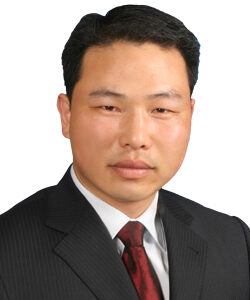China is clearly demonstrating its effort to enforce patents rights, and this has become a powerful tool for those doing business in China. Because the US is still a favourable jurisdiction for patent owners, this article provides a comparison of venue and jurisdiction for a foreign accused infringer in the US and China.
In the US, the federal venue statute applies to accused defendants. The case of Leroy v Great W United Corp held that the purpose of the venue statute “is to protect the defendant against the risk that a plaintiff will select an unfair or inconvenient place of trial”.

Patent attorney
Beijing Wanrui Law firm
A patentee may bring a claim in the judicial district where the defendant resides, or where the defendant has committed acts of infringement and has a regular and established place of business. But when it comes to a foreign defendant, the venue statute applies.
The US Supreme Court held, in Brunette Machine Works v Kockum Industries, that the congress did not design section 1391(c)(3) of title 28 in the US Code “as a venue restriction at all, but rather as a declaration of the long-established rule that suits against aliens are wholly outside the operation of all the federal venue laws, general and special”.
For example, section 1391(c)(3) provides that a foreign defendant “may be sued in any judicial district, and the joinder of such a defendant shall be disregarded in determining where the action may be brought with respect to other defendants”. Thus, a foreign defendant cannot avoid the risk of an unfair or inconvenient place of trial without the shield of section 1400(b).
To adjudicate a claim against a foreign defendant, a court needs to exercise personal jurisdiction. The federal long arm statute allows a district court to do so if the foreign defendant’s contact is with “the entire United States, as opposed to the state in which the district court sits”, as held in Synthes v G.M. Dos Reis Jr. Ind. Com de Equip. Medico. Rule 4(k)(2) in the Federal Rules of Civil Procedure provides that: For a claim that arises under federal law, serving a summons or filing a waiver of service establishes personal jurisdiction over a defendant if: (1) the defendant is not subject to jurisdiction in any state’s courts of general jurisdiction; and (2) exercising jurisdiction is consistent with the United States Constitution and laws.
Thus, under rule 4(k)(2), in determining whether specific jurisdiction exists, federal courts held, in M-I Drilling Fluids UK v Dynamic Air, to “apply a three-part test considering whether: (1) the defendant purposefully directed its activities at residents of the forum; (2) the claim arises out of, or relates to, the defendant’s activities with the forum; and (3) assertion of personal jurisdiction is reasonable and fair.”
If a plaintiff establishes the first two parts, the foreign defendant must “present a compelling case that the presence of some other considerations would render jurisdiction unreasonable”, according to Burger King v Rudzewicz. For example, the federal circuit held that purposefully importing, shipping, bringing accused products into the US, or installing the accused systems on US territory and ignoring a notification from the plaintiff that the systems were infringing M-I’s patent, show that the foreign defendant “purposefully directed its activities at the US” as in the above-mentioned Dynamic case. Then, the defendant must present a “compelling case that the presence of some other considerations would render jurisdiction unreasonable”.
The court considers five due process factors: (1) the burden on the defendant; (2) the forum’s interest in adjudicating the dispute; (3) the plaintiff’s interest in obtaining convenient and effective relief; (4) the interstate judicial system’s interest in obtaining the most efficient resolution of controversies; and (5) the shared interest of the states in furthering fundamental substantive social policies.
The Federal Circuit held that it would be reasonable of a US court exercising personal jurisdiction over a foreign defendant when: (1) the plaintiff has a paramount interest in obtaining convenient and effective relief in the US court; and (2) the US has a substantial interest in enforcing the federal patent laws.
In China, the venue and jurisdiction provisions treat domestic defendants and foreign defendants all the same, and the provisions are very straightforward and predictable for defendants. Under the China Supreme Court’s interpretation, a plaintiff can bring a lawsuit with courts authorized by the China Supreme Court: (1) specialized IP courts in Beijing, Shanghai and Guangzhou; or (2) some specialized IP panels of some intermediate courts; or (3) all intermediate courts sitting in a province’s capital city and some intermediate courts. No matter which court exercises original jurisdiction, the China Supreme Court serves as the sole appellate court.
A plaintiff has a right to sue, either in an authorized court, or where the defendant resides, or where the infringement took place: (1) if the plaintiff only lists a manufacturer as defendant, the authorized court sitting in the manufacturer’s place has original jurisdiction over the infringement; (2) if the plaintiff lists both the manufacturer and a third-party distributor, the authorized court sitting in the distributor’s place has original jurisdiction; and (3) if the plaintiff lists both the manufacturer and a distributor that is an internal department of the defendant, and the plaintiff claimed infringement including making and selling, the authorized court sitting in the distributor’s place has original jurisdiction.
The plaintiff may exploit an opportunity by accusing infringers before a local China National Intellectual Property Administration (CNIPA) office. The jurisdiction and venue of a local CNIPA office follows similar rules to the court.
Jiang Xianqi is a patent attorney at Beijing Wanrui Law firm, a network firm of Sanyou Intellectual Property Agency

16/F, Block A, Corporate Square
No.35 Jinrong Street, Beijing 100033, China
Tel: +86 10 8809 1921 / 8809 1922
Fax: +86 10 8809 1920
E-mail:
sanyou@sanyouip.com
www.sanyouip.com





















